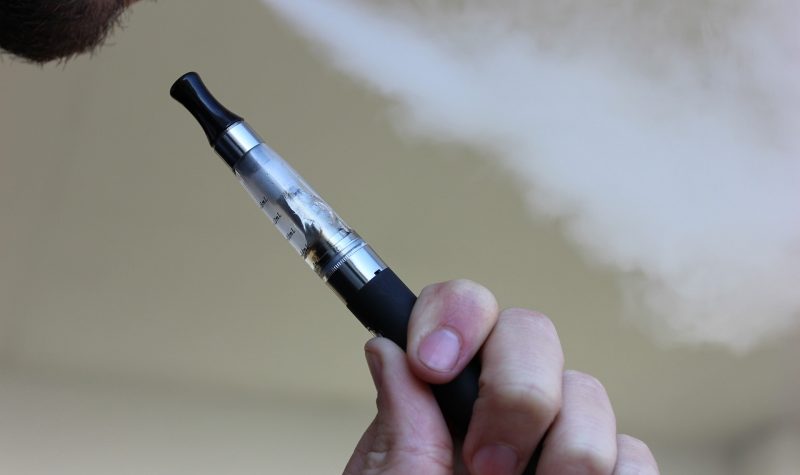Statistics show that vaping has been increasing in Canada and is common among youth ages 15-24, with many believing the practice is safer than smoking cigarettes. Yet little is known about how vaping affects the lungs and whether it can permanently damage them.
Researchers at Dalhousie University are hoping to answer that question with the use of a novel breathing test that has been shown to detect early lung damage in children with lung disease years before traditional breathing tests.
Dr. Sanja Stanojevic, an assistant professor in Dalhousie's Department of Community Health and Epidemiology who is leading the study "Measuring the Effects of Vaping on the lungs," said that although vapes were initially introduced as a safer way of consuming nicotine than traditional tobacco cigarettes, the long-term effects of vaping on the lungs are unknown.

Dr. Sanja Stanojevic is an assistant professor at Dalhousie University’s department of community health and epidemiology. She is the lead of the research project. Photo contributed.
"We have lots of studies, from animals or cellular studies that tell us some information, but it's really difficult to understand the impact it has on people. What we're trying to do is look at individuals who regularly vape and a group of otherwise healthy individuals who have no history of vaping, and we want to compare how their lungs are working," said Stanojevic.
She added that studies in animals showed that high concentrations of exposure to vape particles damages the airways. There is also evidence that it has effects on the development of the brain and lung tissues, however there is no definitive evidence as there is with smoking cigarettes.
In September, the team began looking for 50 individuals who vape, and 50 who don't, to join their study and are currently halfway through finishing their research.
"We know that there were cases in the United States and some here in Canada have something called 'EVALI,' or 'cigarette-related lung injury.' There was a spike in hospitalizations, and some individuals died and that was our first clue that maybe there was something about vaping that was causing detrimental or negative effects on individuals," she said.
She added that there was evidence that the cause behind the spikes was the additives being added to vaping products.
There's also a common perception that many believe vaping is a safer alternative to smoking cigarettes, and while vaping can help individuals who smoke quit, new studies show that individuals who vape are more likely to pick up smoking, she said.
"What we're seeing is the contrast, individuals who vape are more likely to start smoking traditional cigarettes later."
The study will examine if vapes are safer than cigarettes because of less tobacco, or if they are harmful because of the flavors, contents, or metal coils being used to vaporize the liquids.
"We don't know what happens inside the lungs when these chemicals combine and interact. And we also don't know whether heating of the electrical of the metal coils to vaporize these liquids, whether there are very small particles from these metals that eventually end up getting inhaled by the lungs and whether they cause damage."
While most research would require decades of information to understand the long-term effects of a substance, there are some early indications and effects of vaping.
Stanojevic said people who had asthma and vaped, experienced an exacerbation, worsening of their asthma, more symptoms, and ended up in hospital more.
"We also see when we interview individuals who vape, particularly these 18-24-year-olds, they report to us that they have a cough, more difficulty breathing, and new respiratory symptoms that they maybe didn't have before."
The reason why vaping is addictive is that many products have different concentrations of nicotine, Stanjoveic also mentioned there is a social aspect of vaping particularly in young adolescents and early adults.
She hopes her research be able to provide people with information on the topic so they are able to make informed choices about what they choose to inhale into their lungs.
The study is currently recruiting 100 participants between the ages of 18 and 24. Researchers are looking for 50 participants who use pod-type e-cigarettes exclusively (like JUUL) and another 50 who have never vaped and have no history of lung disease and no history of cigarette use.
Listen to the full interview below:


